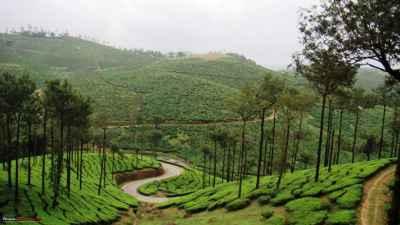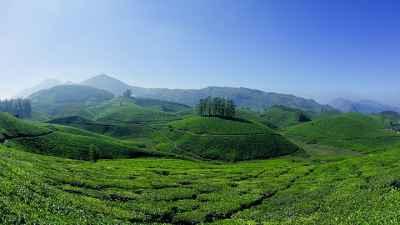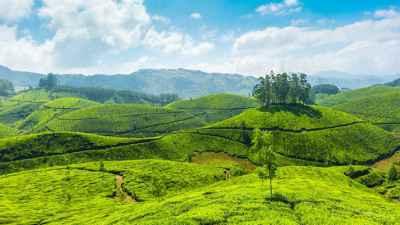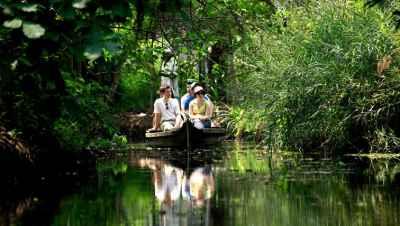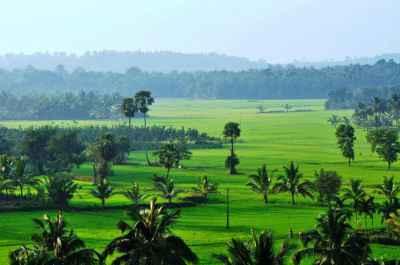Traditional Farming in Kerala: Paddy Cultivation and More
Traditional Farming in Kerala: Paddy Cultivation and More
Kerala, fondly known as "God's Own Country," is not only famous for its serene backwaters, beautiful beaches, and exotic wildlife but also for its rich agricultural practices. Despite the advent of modern techniques, traditional farming continues to thrive in this southern state of India. One of the most notable traditional farming practices in Kerala is paddy cultivation, which has been an integral part of the state's culture and economy for centuries.
Paddy Cultivation
Paddy cultivation, also known as rice farming, forms the backbone of agriculture in Kerala. The state has a vast expanse of paddy fields, known as "paddy lands," which are usually found in the low-lying areas and alongside the backwaters. These fields are marked by their lush greenery, rhythmic sway of the paddy plants, and a tranquil ambiance.
The process of paddy cultivation in Kerala begins with the land preparation. Farmers traditionally plow the fields using oxen or buffaloes, ensuring proper aeration and soil fertility. The fields are then leveled to maintain uniform water distribution during the cultivation period.
Once the land is ready, selected paddy seeds are sown in nurseries. Farmers take meticulous care of the seedlings, protecting them from pests and ensuring optimal growth. After a few weeks, the healthy seedlings are transplanted into the main paddy fields. This transplantation process involves manually planting each seedling, usually during the monsoon season when the fields are submerged with water.
One of the most fascinating aspects of paddy cultivation in Kerala is the traditional method of irrigation known as "Kettuvallam." Kettuvallam refers to the use of traditional wooden boats equipped with a sophisticated irrigation mechanism. The boats are manually operated by farmers who navigate through the intricate network of canals, ensuring proper water supply to the fields.
During the growth stage, farmers pay close attention to the health of the paddy plants. They take measures to control pests, diseases, and weeds using natural methods and organic pest repellents. Traditional knowledge is passed down through generations, helping farmers develop sustainable agricultural practices.
After several months of nurturing, the paddy plants mature and start bearing grain. Harvesting is usually done manually, with sickles or traditional thresher machines. The harvested paddy is then threshed, cleaned, and stored for further processing.
Other Traditional Farming Practices
While paddy cultivation is the highlight of traditional farming in Kerala, the state also thrives in various other agricultural practices. Here are a few notable ones:
- Fishing: Kerala's rich coastal regions provide abundant opportunities for traditional fishing practices. Fishermen use traditional fishing nets, such as Chinese nets and country boats, to capture fish and other marine resources.
- Coconut Farming: Kerala is known for its vast coconut plantations. The state's fertile soil and favorable climate make it an ideal place for the cultivation of coconuts. Farmers use traditional methods to grow and harvest coconuts, and the coconut tree is considered sacred in Kerala.
- Tea Plantations: The hilly regions of Kerala, especially in Munnar, are famous for their tea plantations. Traditional methods of pruning, plucking, and processing tea leaves are still followed, preserving the authentic taste and aroma of Kerala tea.
- Spice Cultivation: Kerala is synonymous with spices. Farmers here practice traditional methods of cultivating various spices like cardamom, pepper, cinnamon, and cloves. These spices are not only used for culinary purposes but are also exported globally.
Preserving Traditional Farming Techniques
The people of Kerala hold a deep respect for their agricultural heritage and strive to preserve traditional farming techniques. Efforts are being made to promote organic farming practices, conserve indigenous seeds, and improve the overall sustainability of agriculture in the state.
Various organizations and government initiatives are providing training and financial support to farmers, encouraging them to continue practicing traditional farming methods. These efforts aim to maintain ecological balance, minimize chemical inputs, and ensure the overall well-being of both farmers and consumers.
Conclusion
Traditional farming in Kerala is not just about growing crops; it is a way of life deeply rooted in the culture and traditions of the state. The commitment of Kerala's farmers to preserve their agricultural heritage is commendable. Through their efforts, the beauty of traditional farming practices, including paddy cultivation, fishing, coconut farming, tea plantations, and spice cultivation, has been passed down through generations, and it continues to flourish in the modern world.
Visiting Kerala and witnessing the traditional farming practices firsthand is an enriching experience. It allows you to connect with nature, understand the importance of sustainable agriculture, and appreciate the hard work of farmers who contribute to the food security and cultural fabric of this beautiful state.
So, next time you plan a trip to Kerala, make sure to explore its traditional farming practices and learn more about the age-old techniques that have sustained the land for centuries.
Don't forget to share this blog post with your friends and family who love to travel and are curious about traditional farming in Kerala!
Disclaimer : The information provided in this blog is for general informational purposes only. While we strive to keep the content accurate and updated, TravelSetu assumes no liability for errors or omissions. If you believe any part of this blog infringes your rights or causes concern, please notify us immediately at info[at]travelsetu[dot]com so that appropriate action can be taken.


